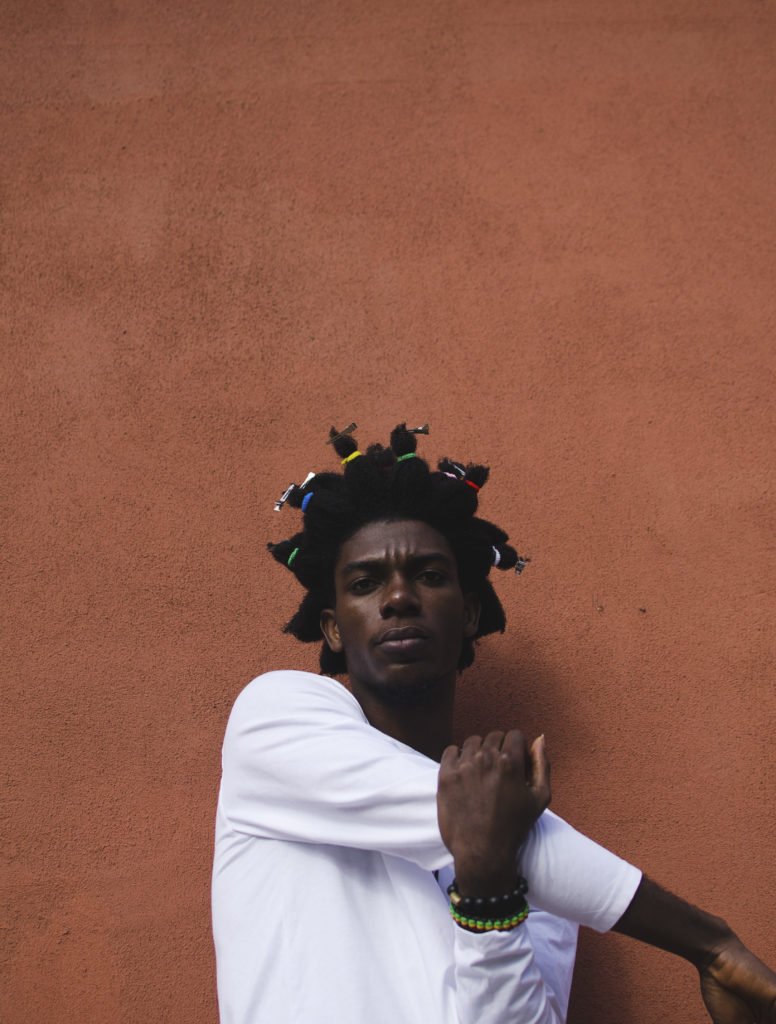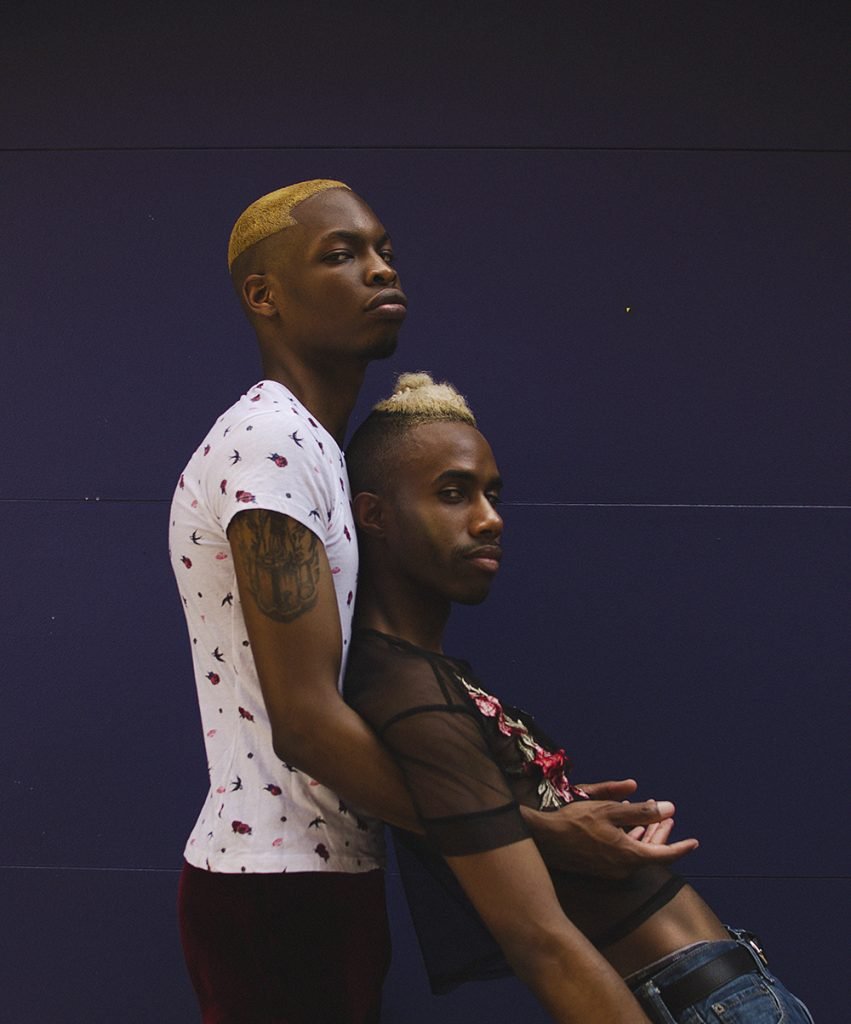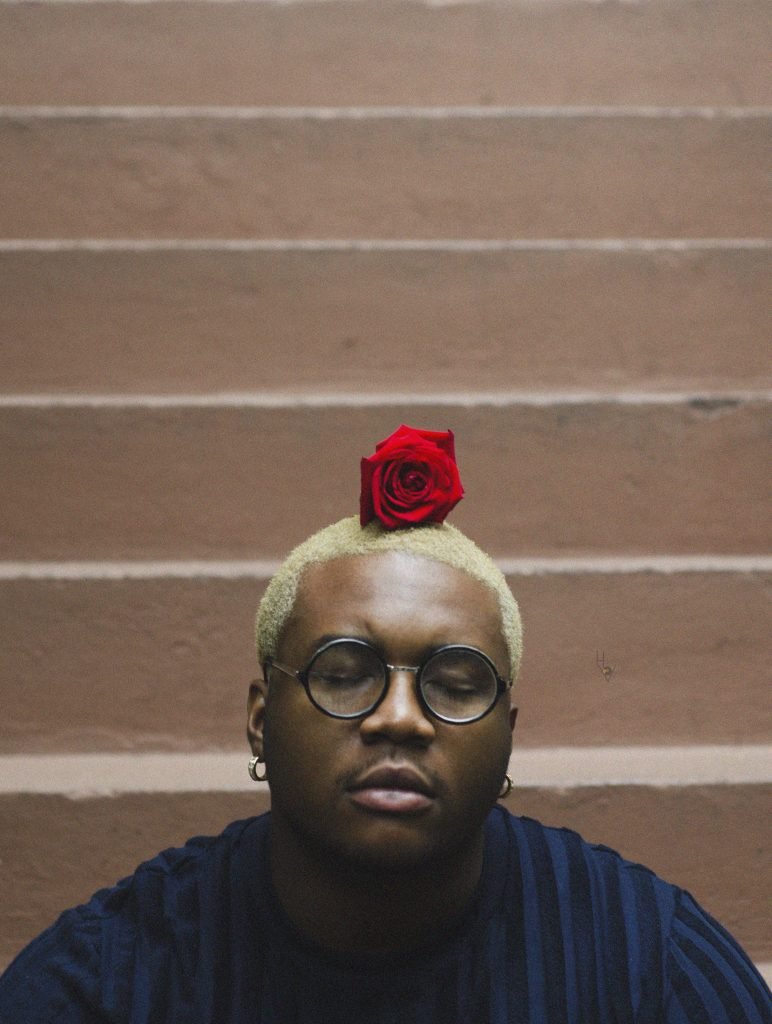Eniola Adeniyi, artistically known as omó pastor, focuses her artistry on the intersections of gender, sexuality, emotions, and history while being of African descent in contemporary society. In her 2018 book, Gaze, omó pastor combines her own work as a poet and photographer with the works of like-minded poets she has met throughout her travels to document Black male identity and masculinity through the female gaze. Since her career began, omó pastor has used her writing, photography, and filmmaking to combat a society that often emphasizes the negatives of Black people. Her photography in Gaze accentuates Black pride and honor, carefully capturing the glow, strength, and dignity within the Black experience and creating halos and shadows around the male figures we often hold sacred in the Black community. I spoke to omó pastor about her book Gaze, collaborating with other writers, and what’s next for the young multi-hyphenate.
“Wherever my camera takes me, I want my people to come with me too.”
Attia Taylor: I was really excited to see your work and read your book. Can you talk more about what’s at the core of the project?
omó pastor: I’m a first generation Nigerian, born in America. So a lot of my work comes from the lens of living in America, being of Nigerian ethnicity, and growing up in New York. I've always been intrigued by society's overall negative view of Black people in society. And how I, as a writer, as a photographer, or as a filmmaker, can combat that.
I started focusing on Black masculinity in 2017. Growing up, I played basketball and hung out with boys a lot. So I've always been in a space where I was able to connect with males on a deeper level. I also remember being young and writing short stories. I remember my dad asked me one time, “what do you want to be?”, and I told him, “I want to be a writer”. Over the years, everything that I've been exposed to, everything I've dealt with, and everything that I've seen my peers and people around me do has pushed me to really use my artistry to tell our stories authentically.
Can you speak about why you chose to collaborate with others on this book?
I wanted to show different perspectives. It's not just me talking, it’s a woman that I met in North Carolina, a woman that I met in Jacksonville, and a woman I met in Texas. I wanted to show a range of womanhood within the project. It's not just my point of view; there's other women that have similar experiences, or their experiences may be totally different. I wanted it to be more robust.
How did you meet all these people?
I met Bird Nefertiti in university. We went to the same school and we're both English majors. Her boyfriend at the time was doing open mics, and I was doing photography at the open mics and collaborating with him on doing another open mic show. That's how we started getting connected. Then, we would have very in-depth conversations about different topics. And I realized, she's a dope poet. I met Amanda [Furdge] in Tennessee at a conference, but she's from Jackson, Mississippi. We were at a conference for the Children's Defense Fund trying to combat child poverty as well as the school to prison pipeline and different other educational issues. We met through a mutual friend and the first day we met I was like, “oh, no, she’s dope. I gotta do something with her.” I met Imani [Jones] in Texas. We were both part of a film institute. She did a poem at the open mic we put together and I was like, “oh, wow, this is amazing. I love her work”. So I just connected with her.
The photographs included are so warm and beautiful and they really compliment the poems about fatherhood, father figures, and masculinity. Can you talk to me more about the photography choices?
The pictures I included were ones I had in my archive that made me think, “this would be dope with this poem”. The men in the book are my friends, my dad, my uncle, and my little nephew.
Wherever my camera takes me, I want my people to come with me too. I wanted to show that you don't necessarily have to be a top model, or work with an agency to showcase your talent. Black, dark skinned man especially. And that's why I have a good amount of dark skinned men in my books. Because they're often overlooked.
I also focus heavily on a lot of dark skinned men because of what dark skin represents. Even in Nigeria, skin bleaching is a major thing, right? Tupac said, “the blacker the berry, the sweeter the juice”. All skin tones are beautiful but because darker skin has been ostracized throughout society, I've tried to focus on that. I want people to shift their mindset. In Nigeria, colorism is very heavy. So I purposely choose certain people to photograph because of that.
I think as a curator you totally nailed it. Do you think being born and raised in New York shows up in your work?
I was born in Brooklyn. Then we moved to Queens. Then I moved back by myself to Brooklyn. So Brooklyn and Queens essentially made me who I am. I definitely believe it shows up in my work.
What are you working on now? And what's next for you? If you know that.
I have a novel I'm working on that talks about the topic of being a black woman and struggling with the issue of marriage. It explores polyamory in a sense and the whole idea that not everyone is comfortable with being married. I want to tackle the issue of being forced to marry and have children as if that's the number one goal in life for a woman.
You can follow omó pastor on instagram. This interview has been edited for length and clarity.








